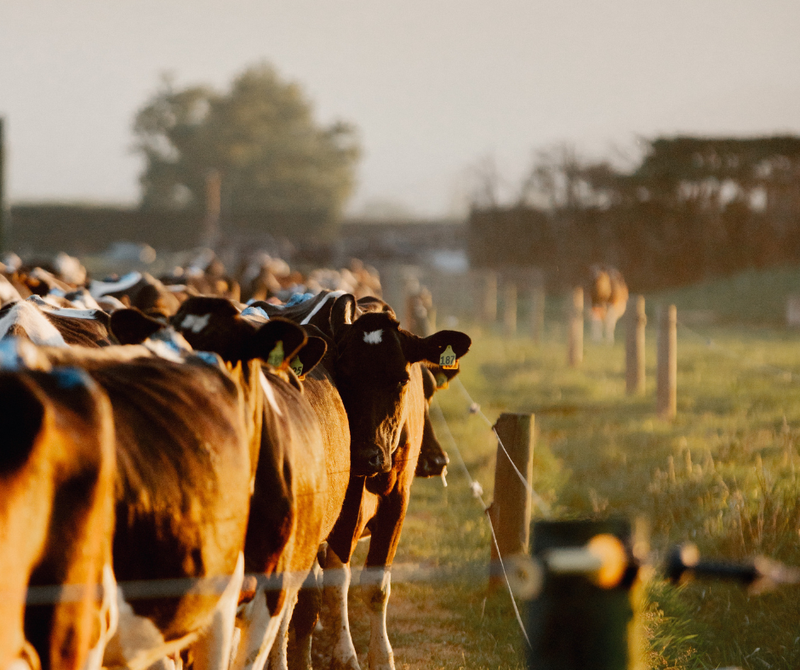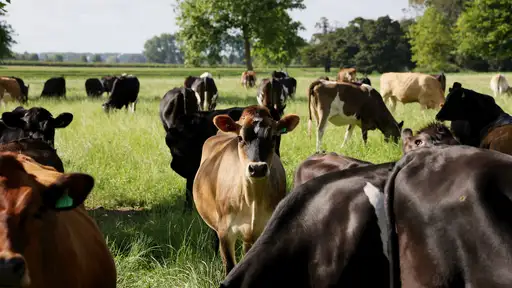Despite a challenging 2021/22 season, the annual New Zealand Dairy Statistics report released today by DairyNZ and Livestock Improvement Corporation (LIC) shows an innovative dairy sector responding well during a changeable time.
In the 2021/22 season, 20.78 billion litres of milk containing 1.87 billion kilograms of milksolids was processed by dairy companies. After reaching a record milk production per herd and per cow in the previous 2020/21 season, production dropped back to 2019/20 levels as the impacts of Covid-19, climatic conditions on farm, inflationary pressures and supply chain issues presented a challenging year for the industry.
The trend of declining cow and herd numbers continued and was accompanied by a 4.3% decrease in litres and 4.1% decrease in kilograms of milksolids processed, compared to the previous season.
DairyNZ chief executive Dr Tim Mackle acknowledges that farmers’ achievements in the face of a range of challenges in recent years is positive.
“Through tough times farmers continue to prove their resilience and stay focused on milking better and more efficient cows, by making the most of technology and information,” says Dr Mackle.
“Dairy farmers are proud to be world leading and work hard to retain their unique pasture-based farm system, as they keep milk production flowing and therefore creating real value for New Zealanders.”
The season saw an increased uptake of herd improvement services, with record herd testing levels of 3.79 million cows. Artificial insemination remained steady at 3.94 million cows.
This continues the trend of New Zealand farmers remaining focused on improving the production efficiency of their herds, and utilising data and insights to support on-farm decisions.
LIC chief executive David Chin says New Zealand farmers responded well to the challenges of the 2021/22 season.
“Rising to challenges in a changing world is nothing new for our sector. Our farmers continue to invest in solutions that will support them to remain global dairy sector leaders.
“Record levels of herd testing uptake and strong investment in artificial breeding demonstrates a continued focus from farmers on herd improvement, to identify poor performing cows and to breed more efficient animals.”
The average dairy co-operative payout from Fonterra and Tatua was $9.52 per kg, which was a record average payout for farmers, while dairy exports reached a record $22 billion in 2021/22, once again showing the importance of the dairy industry to New Zealand’s economy and our rural communities in a difficult economic climate.
Dr Mackle says dairy continues to play a critical role in supporting and contributing to New Zealand’s economy, including providing jobs for around 50,000 Kiwis.
“We should be proud of everything our sector is achieving, by working together. Dairy continues to be a key contributor to the New Zealand economy and we are committed to delivering for Kiwis by making quality nutrition, and looking after the environment,” says Dr Mackle.
This is the first New Zealand Dairy Statistics published since herd recording companies have been able to send data directly to the Dairy Industry Good Animal Database (DIGAD).

Key statistics from the New Zealand Dairy Statistics 2021-22 report
- The dairy sector produced 20.78 billion litres of milk containing 1.87 billion kilograms of milksolids – a 4.3% (~929 million litres) decrease in litres and a 4.1% (~79 million kg) decrease in milksolids processed compared with the previous season
- Average milk production per cow was 386 kg of milksolids (made up of 216 kg milkfat and 169 kg protein), a 2.9% decrease from 397 kg last season and back to similar levels as 2019/20 season.
- Cow numbers have continued to decline, down to 4.84 million, a decrease of 1.26% from the previous season.
- A total of 3.79 million cows were herd tested (78.3% of cows) – a new record.
- 3.942 million cows were mated to artificial breeding.
- The average dairy co-operative payout of $9.52 per kg milksolids was the highest average payout on record, increasing from $7.76 in the previous season.
Download the New Zealand Dairy Statistics 2021-22 report here.




